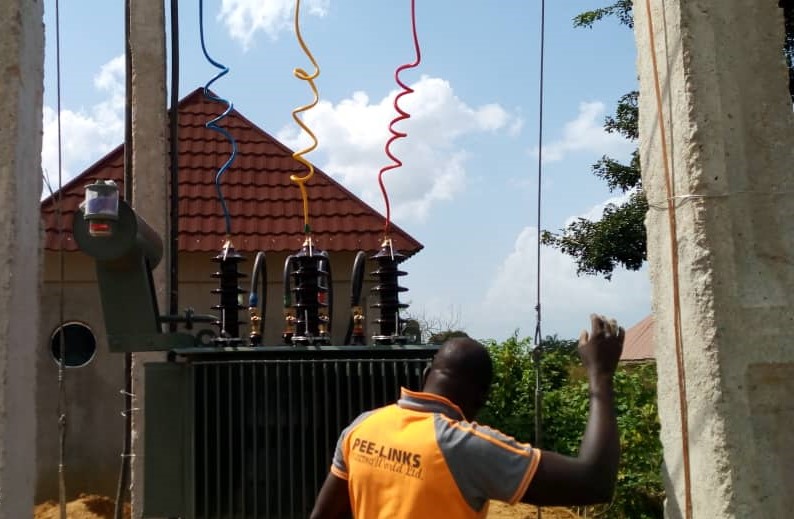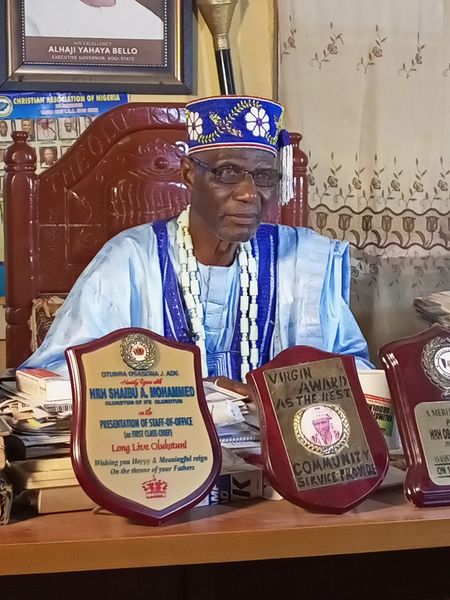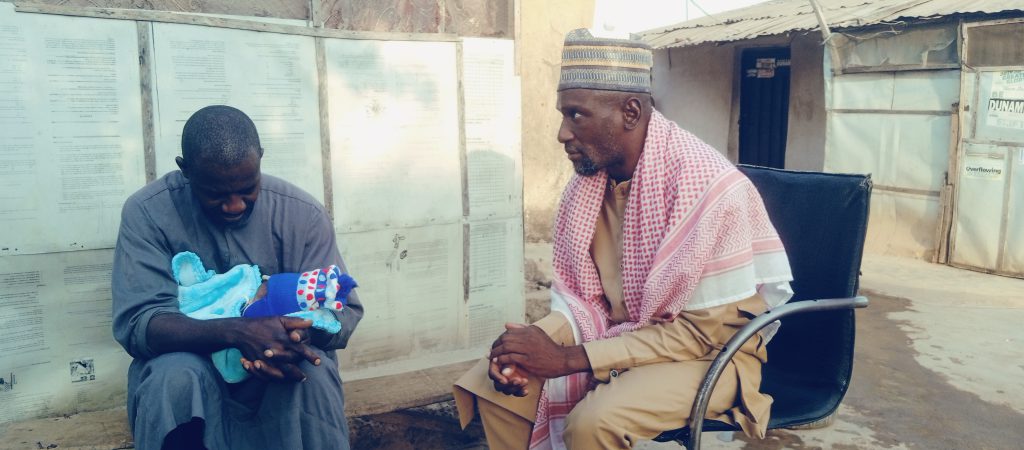How a decade-long blackout killing businesses in Kogi communities?
Adeyemi Adekunle
Isiaka Haruna, 48, sits door looking frail, waiting for patronage from the few customers that patronize him. He has been a saw-miller for 20 years at Ifeolukotun in Yagba East Local Government of Kogi State, with his small saw machine that he uses in processing wood to finish and semi-finish. However, over the past decade, power cuts from the grid have prevented him from using his heavy equipment, which requires an adequate electricity supply to function, and this situation has made his life difficult.

The unrelenting issue of power outages in Nigeria has become a significant obstacle to the growth and sustainability of businesses. Not only has the community been affected, but it has devastatingly affected local businesses and the livelihoods of the inhabitants of these communities.
‘I have a generator, but the capacity is not enough’, she says, adding that the same goes for the freezer that used to keep her supplies fresh. ‘All that equipment is fast decaying. Small tools still work with the generator, but it is expensive. I spend about 5,000 Naira daily to power the generator at work, Sholaide Adejoke, a beer parlor owner in Ife Olukotun, said.’

The lack of electricity has crippled numerous enterprises, resulting in job losses and economic stagnation. Small-scale entrepreneurs, such as farmers, welders, and artisans, have faced significant challenges in the absence of reliable power supplies, hindering production and hampering their ability to compete in the market. Additionally, owners of larger businesses, such as manufacturing and processing industries, have been forced to close down or relocate to areas with better access to electricity. These closures have compounded the economic woes of the communities, exacerbating poverty and limiting opportunities for growth.
Iya Dada, a businesswoman in Oranre, a close community with a shared boundary with Ife-olukotun, said he had to give up on his former trade of supplying ice blocks to street traders who needed them to cool their fizzy drinks. “When this community had electricity, I made a lot of profit from powering my freezers and selling enough products. But for several years now, there has been no way I could power the freezers with a diesel generator.’’
Garri and Palm Oil
Iyabo Olaniyan and Sakirat Raheem are just two of the over 10,000 inhabitants of Ifeolukotun who, in the decades after independence, benefited from bustling business and economic growth. As nodal communities, they benefited from the hustle and bustle that was bequeathed to the community when its power supply was connected to the national grid. They both have electric-powered machines that enhance their jobs effectively and also save them from carbon emissions that come from fossil fuel consumption.

They, like community leader Seun Fashakin, remember the days when power in the community supplied every surrounding area and attracted foreign investments to the area. ‘There was full employment, attracting people from other parts of Nigeria, Seun Fashakin says, but ‘now the industries have left, and small-scale businesses are struggling to survive. We have ghost communities where people can no longer afford to live in darkness.”
As of the time of reporting, no governing body, from the electricity distribution company to the electricity regulator, the Rural Electrification Agency, the Ondo State government, or the national leadership, has been effectively held to account for this crisis.
Communities hang between AEDC AND BEDC.
The magnitude of the darkness has given birth to a dilemma between these communities, which before a decade of blackouts thrived in massive businesses but now hang out with no place to go. Residents, when they were cut off, were told they were under the Benin Electricity Distribution Company (BEDC). On their Visit to BEDC, they were referred to AEDC to get the issue resolved. “Despite sending representatives to Abuja Electricity Distribution Company, we did not get any response, and the over-a decade-long darkness still persists. Oba Shuaib Mohammed said
Crazy billing before Privatization
There was no way this was plausible, says Kayode Oderinde. ‘For example, some communities in this local government had not enjoyed electricity supply since 2013, and they were still billed too, and then these bills were added to the indebtedness of our communities. In the end, we compiled and submitted the billing histories of communities that had been without electricity supply for the past ten years to AEDC and BEDC.
This may be in part a result of what is known as ‘crazy billing’, a common Nigerian term for estimated bills. This system is used in many parts of the world, and it often works well, but in Nigeria, the estimates are not confirmed later by checking the meter.

Since then, the inhabitants of these communities have made several efforts to get the BEDC to reconnect them, including protests and petitions to government agencies and officials, but these have all come to naught. Even when Kogi State Secretary to the State Government, Mrs. Folashade Arike, waded into the matter, including the affected community development unions, it turned out to be a waste of time; the BEDC and AEDC still did not respond.
The electricity companies failed to segregate areas for each other.
An underlying cause of this protracted chaos seems to be the privatization of the BEDC and AEDC, which were formerly state companies, in 2013. Since the privatization exercise of the electricity distribution company in Kogi State, there have been supremacy wars over who gets what from the areas they were initially in charge of, and all efforts to make sure they all reach an impactful agreement have failed to make headway for the two contending power companies saddled with meeting the demands of their teeming customers.
This key limitation was identified as the lack of coordination and collaboration among these two stakeholders involved in the resolution process. Previous efforts made by various people made it look fragmented and lacked a unified approach, resulting in inefficiencies and delays. An incomprehensible long-term plan or strategy addressing the underlying causes of the power cut has also impeded the effectiveness of previous negotiations and interventions.
To confirm this supremacy issue, Adeyemi Adekunle sent emails from August 21st, 2022, to June 23rd, 2023, to get the AEDC and BEDC sides of their stories, but as of the time of filing this report, no response had been received.
The missing Link
‘The missing gap in these projects is that there is no specific Body of regulators that has taken time to check through what they can do to cushion the pains of the inhabitants of these communities, which is making the dream of ending a decade-long power cut a darkness at the end of the tunnel for the people.
The BEDC did not reply to emails or phone calls. We also reached out to the NERC by email to ask what measures were in place to ensure that BEDC carries out its reconnection order, in addition to asking what punitive measures the regulator has in place to deal with contractors that disobey its orders. Like the BEDC, the regulator also did not respond.
For the people of these communities, they remain hopeful that better times will come. Because a lot of them still hold out hope that the hustling and bustling that eroded them will return ‘someday’ and that power will bring with it a return to the economic growth of the past.

A Nigerian trained investigative journalist, who cover various news beats in Nigeria.









